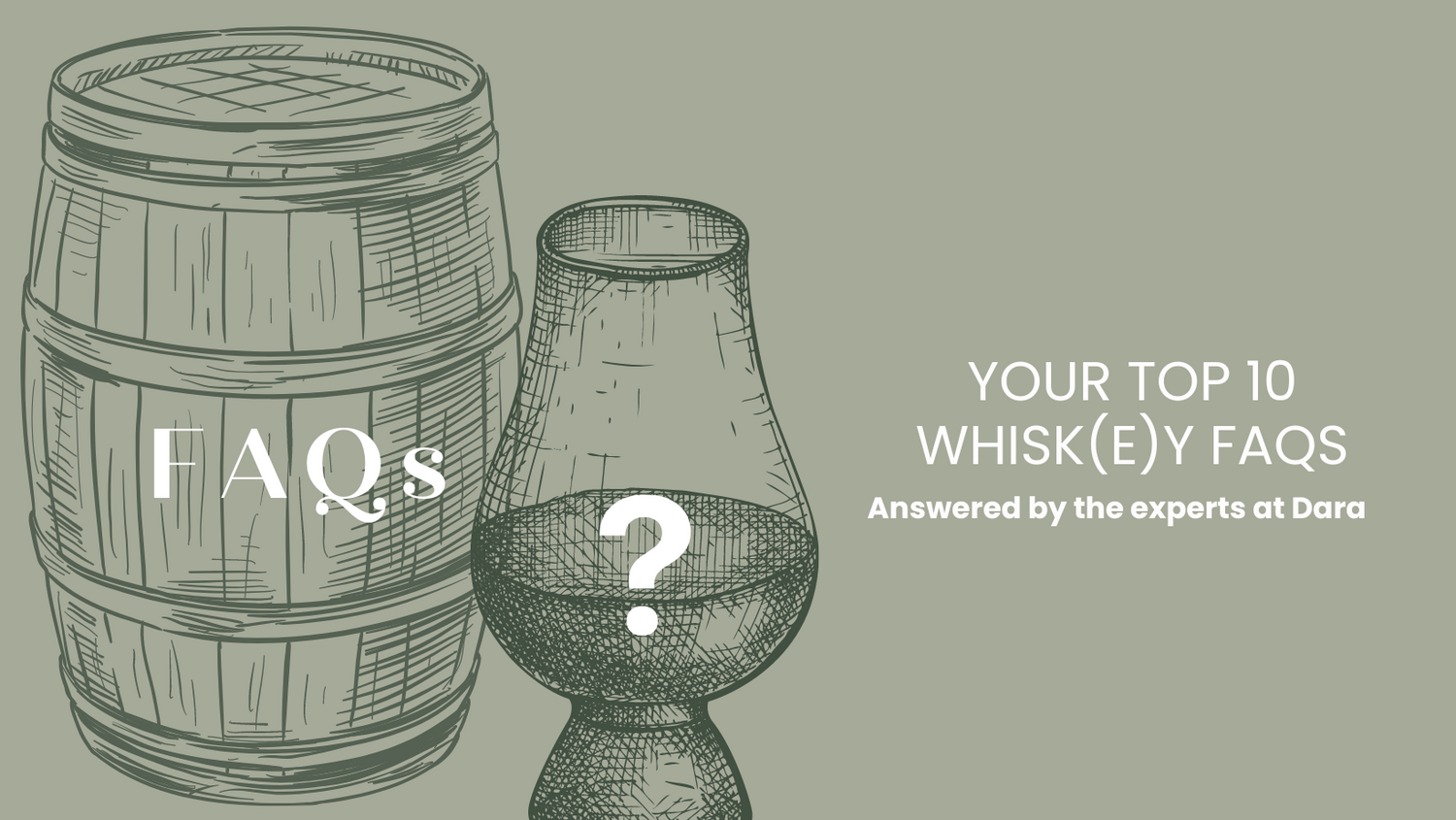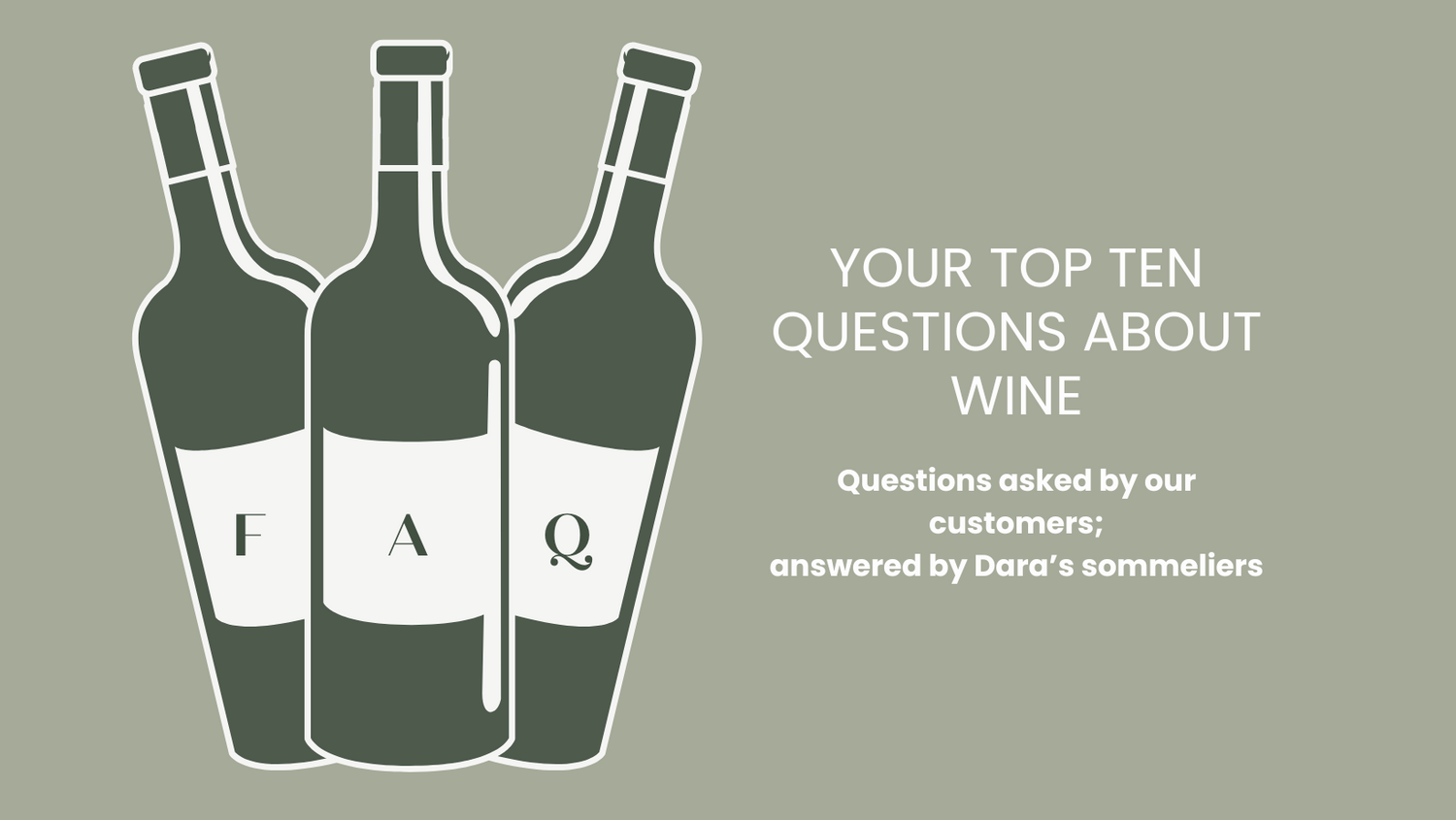...answered by the experts at Dara
Both are correct. "Whiskey" is typically used in Ireland and the United States, while "whisky" is used in Scotland.
Whisky is made by first fermenting a grain mash, which is typically barley, corn, rye, or wheat soaked and heated. It is then distilled and aged in wooden barrels.
The base grain is the main difference, then each country or state may have additional regulations. Bourbon is made primarily from corn (more then 50%) and aged in new charred American oak barrels. Scotch single malt whisky on the other hand is made from malted barley and aged for a minimum of 3 years in used barrels (often casks previously used for bourbon but sherry, wine, and rum are common too).
The aging process for whisky imparts color (it is clear when first distilled) but also flavor and complexity to the spirit as it interacts with the wood of the barrels.
Single malt whisky is made from malted barley at a single distillery, showcasing its unique characteristics. Blended whiskies are a mix of whiskies from various distilleries, aiming for a consistent flavor profile. So the “single” refers to the distillery where the whisky was made rather than the grain.
Traditionally in Scotland, a Glencairn or tulip glass is used which allows you to warm the whisky, swirl it around the bowl and appreciate the notes. If, however, you're in the mood for a short drink like a whisky sour or you love your whisky on the rocks, then an old-fashioned glass is what you'll want.
In order to make single malt Scotch whisky, malted barley, must be heated / toasted to stop the germination process (which itself was initiated by wetting the barley to convert starches into sugars). The barely can be toasted with dry heat (no smoke exposure) or by using the traditional most abundant fuel source for starting a fire to complete that task in Scotland i.e. peat. As the peat burns, its smoke washes over the barley, imparting those flavors straight into the grains.
Peat is a naturally occurring product of bogs and marshy areas, and it is caused by organic matter being collected in the area and then slowly decomposing over hundreds of years. It was used as fuel in Scotland because of the lack of trees, especially on the western coast and the islands such as Islay. It is harvested, dried, and used to toast barley in distilleries to impart a smoky earthy flavor to whisky. The length of exposure to peat smoke influences the intensity of the whisky's peaty taste.
Yes, straight whisky, even if made with wheat, barley, or rye is considered gluten-free. Specifically, because in Scotland it is not permitted to add any additives that may include gluten, Scotch whisky is safe for people with celiac disease because the distillation process removes all gluten from the grain. However, when buying whisky from less regulated markets, look to make sure that there was no flavorings or other additives included after distillation.
Whisky’s high alcohol and low sugar content means it’s shelf-stable. Once opened it will perceptibly change after 12 – 18 months from opening. “Change” is a spectrum, though, whisky will never spoil, per se, you can drink a glass of opened whisky 20 years from now and it will not make you sick. However, not only will oxygen start oxidizing the flavor (think of a cut apple after a few hours out on your kitchen table) but also, the alcohol content will decrease over time from evaporation. An unopened bottle of whiskey can last forever without going bad. As long as the bottle remains sealed and is stored in proper condition, any special bottles you have will last for decades. The best protection is to keep your bottles stored somewhere completely out of direct sunlight, like a cupboard or shelf.





